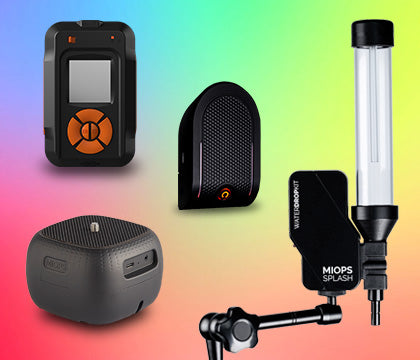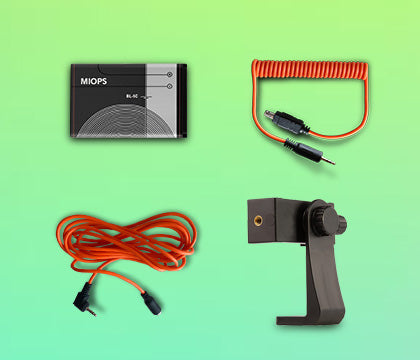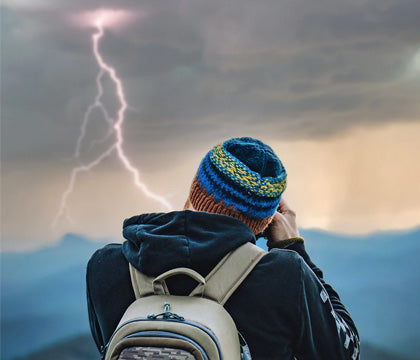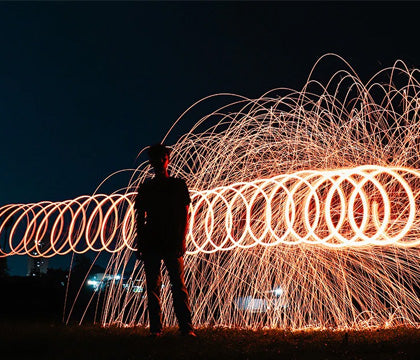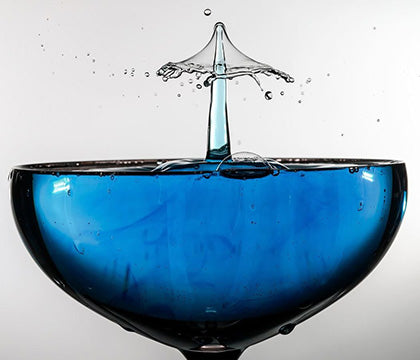The power of high-speed camera triggers is so impressive that anyone, even with a regular camera, can capture high-speed lightning events with ease and precision. In fact, this type of technology has taken photography to the next level so that both beginners and professionals can achieve even the most impossible shots.
So how do lightning triggers work? Having the answer to this question will help you fully understand the functionality as well as the possibilities where this ultimate camera equipment can take you. Here, you’ll explore the details on how high-speed photography triggering can help you freeze the most elusive lightning bursts in not only just one but in an unlimited number of accurately-timed shots.
Lightning Mode and the Light Sensor
High-speed triggers ideal for lightning photography have one thing in common: a Lightning Mode feature that serves a specific function to provide focused and flexible options when dealing with high-speed subjects, specifically, millisecond lightning bursts.
Some smart camera triggers, for example, easily detect lightning events with the help of a Light Sensor that automatically signals the camera shutter to do its job in as fast as a few milliseconds. An option to adjust the light sensitivity of this amazing device is also available so that the trigger can easily detect even the most subtle detail of a lightning burst.
Having two of these features working together, you’re sure that you can get rid of wasted exposure and blurry images. Most importantly, a Delay setting available in a smart lightning trigger can help you perfectly time your shot.
Ideal Lightning Trigger Settings
A lightning trigger can be attached to any type of digital SLR and can be remotely controlled either wired or wirelessly. Smart camera triggers can be wirelessly linked to a smartphone device for a more user-friendly interface.
Whether you choose a wired or a wireless method will depend on the terrain where you’re shooting and even the weather condition. Remember that capturing lightning strikes can be dangerous, especially if you’re diving into this type of photography without much planning.
Once you’re ready, here are some basic steps that you should follow:
 MIOPS Lightning Trigger
MIOPS Lightning Trigger1. Set your camera trigger to Lightning Mode.
As mentioned earlier, only a few camera trigger device has a Lightning Mode setting so it’s always a wise option to check and do your research before buying your first ever camera trigger unit. Also make sure that under this Mode, you are able to fully control the set up such as sensor sensitivity as well as a delay timer.
2. Adjust the light sensor sensitivity to over 95%.
There are several types of lightning and while others can be extremely bright and appear with imposing branches, others have bursts which cannot easily be perceived by the naked eye. This is where the Light sensor sensitivity plays an important role in defining and showing a more visible display of light.
Depending on what and how much light you want to capture, the adjustable sensitivity setting can be really helpful.
3. Make sure that your camera is in Manual Mode.
No matter how intuitive you think your camera is, it’s also best to set it in Manual Mode so you can make the necessary setting adjustments depending on the environment and the amount of light source you have.
4. Don’t forget to assign a 200 value for the ISO.
Of course, this will depend on what time of the day you’re taking your photos. Adjust your ISO value accordingly.
5. Set your aperture between f/8-f/11, with a shutter speed of 1/125.
Adjusting your shutter speed won’t really make a huge difference but this setting is the prescribed speed when taking regular lightning photos.
6. Finally, change the focus to Infinity.
Remember that lightning events are unpredictable so setting your focus to Infinity will give you more control on the framing of your photo. Some photographers even suggest using a wide angle camera lens to achieve the best results.
For more tips and tutorial, read our article How to Take the Extraordinary Lightning Photos.
As a summary: ensuring that you follow these recommended settings can help you achieve a successful lightning photography session even if it’s your first time. It’s important to remember that how you adjust your settings will vary depending on the weather during your shoot. Moreover, remember that in capturing extremely high-speed events like a lightning burst, your camera’s shutter speed won’t really make a big difference – so this is where the lightning triggers come in.

MIOPS SMART+
Take impossible photos by turning your camera into a high-speed capture device!
Making further adjustments
Successful lightning photography sessions require patience, creativity, and versatility. Once you’ve adjusted the trigger and your camera’s settings based on what was mentioned above, make sure to check your first shot.
Here are the things that you should keep in mind:
– If your camera’s shutter didn’t activate even after a lightning event, then make the necessary adjustments such as changing your Light sensor’s sensitivity.
– If your camera was able to successfully detect that lightning burst, check and review the image and make the adjustments that you need based on your preferred output.
– If the image appears too dark, you should increase the settings for the following: ISO level and aperture value.
– If the image appears to be overexposed, the basics of photography dictate that you should decrease your ISO and narrow your aperture.
– Once you finally achieve the quality of photo that you like, it’s time to leave the work to your camera and its faithful lightning trigger.

Conclusion
Not all lightning camera triggers are created equal. While there are others that can provide the basic trigger functions that can upgrade your camera’s capabilities, only a few can give you the freedom and flexibility to give you a full control of the process and the results especially when capturing high-speed events such as lightning busts.
Moreover, relying on the traditional method of taking lightning photos will not be enough if you want to truly capture unique and rare events. There are millions of photographers out there and choosing the best camera trigger equipment matters big time, especially if you want your image to stand out.
Whether you’re a professional or just a beginner shutterbug, investing in the right high-speed camera trigger unit is your best shot to fully experience the wonders of lightning photography.
Related Article: What is a Camera Trigger? A Simple Guide for Beginners
Related Article: Lightning Explore Site


